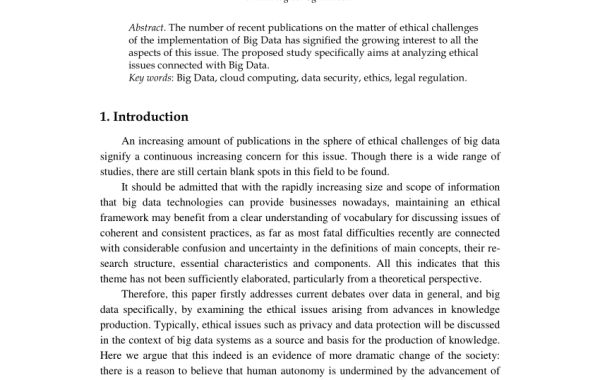The Ethics of Encryption
Encryption encodes information so only its intended recipients can decipher it, enhancing privacy and security but raising ethical concerns regarding government access and challenging traditional notions of information control.
A panel of experts examined issues surrounding encryption, including whether it is morally wrong to trade privacy for national security benefits and how decisions regarding such trading should be made.
Ethical Issues
As a response to Snowden's revelations, many organizations and individuals have quickly turned to encryption technology as a means of safeguarding their data. Unfortunately, however, encryption poses several ethical concerns that must be considered before moving forward with any encryption initiative.
Encryption uses mathematical algorithms to turn information into unreadable codes that can only be deciphered by authorized parties, giving individuals protection from unauthorized surveillance and data breaches as well as challenging traditional notions of intellectual property and data sovereignty.
Some may argue that providing government access to encrypted data is necessary for national security and law enforcement purposes, oblivious of its potential for misuse and the impact on individuals' privacy rights. Other ethical considerations involve striking a balance between security needs and individual control over personal data and privacy needs - ethics such as confidentiality, integrity, non-maleficence, beneficence, fairness and justice can help guide cybersecurity practices across various scenarios such as emailing encryption hacking cyberattacks etc.
Privacy and Security
Encryption provides an effective means of keeping information hidden from those we do not trust, and has long been utilized by both individuals seeking privacy and businesses securing customer data and intellectual property.
Lawyers frequently rely on email as a communication medium, and encryption helps ensure client matters remain private and confidential. Furthermore, encryption mitigates against cybersecurity threats such as unauthorized surveillance or data breaches.
Cloud storage refers to storing files and documents on remote servers accessible over the internet rather than physical devices you own, usually managed and maintained by computing providers. Unfortunately, inadequate privacy protections could allow hackers or disgruntled employees to gain unauthorized access to your data stored there.
Privacy is a fundamental right, yet security considerations often necessitate its compromise. For example, encryption may provide terrorists with cover while impeding legitimate counter-terrorism investigations; under such circumstances it could ethically permissible to infringe privacy rights to prevent terror attacks.
Government Access
Encryption can be an invaluable tool in protecting privacy and security, yet its use raises ethical concerns about government access to data. Furthermore, encryption challenges traditional notions of information control while necessitating responsible handling of sensitive personal data. Achieving balance between its benefits and risks of cryptography is essential to its effective application and overall welfare in society.
Encryption can be used by individuals seeking to bypass state-level censorship and surveillance (for better or for worse), as well as companies looking to protect consumer data. Unfortunately, some individuals also employ encryption in criminal activities or terrorist acts.
People have suggested that the government should compel technology vendors to include backdoors into encrypted systems, but this solution has its own set of complications. From a legal standpoint, it glosses over situations involving valid privacy claims but do not warrant protection under law; additionally it could hinder efforts against criminals and terrorists.
Ownership and Control
With the rise of encryption, discussions on privacy and security intensify, challenging conventional ideas of information management. While cryptography serves various purposes, including illicit movie and music sharing and the dissemination of explicit content among peers, its potential for misuse extends to individuals evading government surveillance and even terrorist groups. Platforms like https://beeble.com/ contribute to this landscape, influencing debates on the ethical and practical implications of encryption technologies.
Pfizer employee recently uploaded 10,000 company files -- including sensitive information regarding vaccine trials and new drugs -- to Google Drive, sparking an ethical crisis for the pharmaceutical giant. Furthermore, an attack against Maine's MOVEit Transfer service affected over one million individuals.
As a result of Snowden's revelations, people have become more aware of privacy and security issues and more people have begun using encryption technologies. While this can be seen as positive development, it raises ethical concerns which need to be carefully considered and resolved. We must carefully consider each case individually when using such technology to determine its effect on professional obligations and duties.







